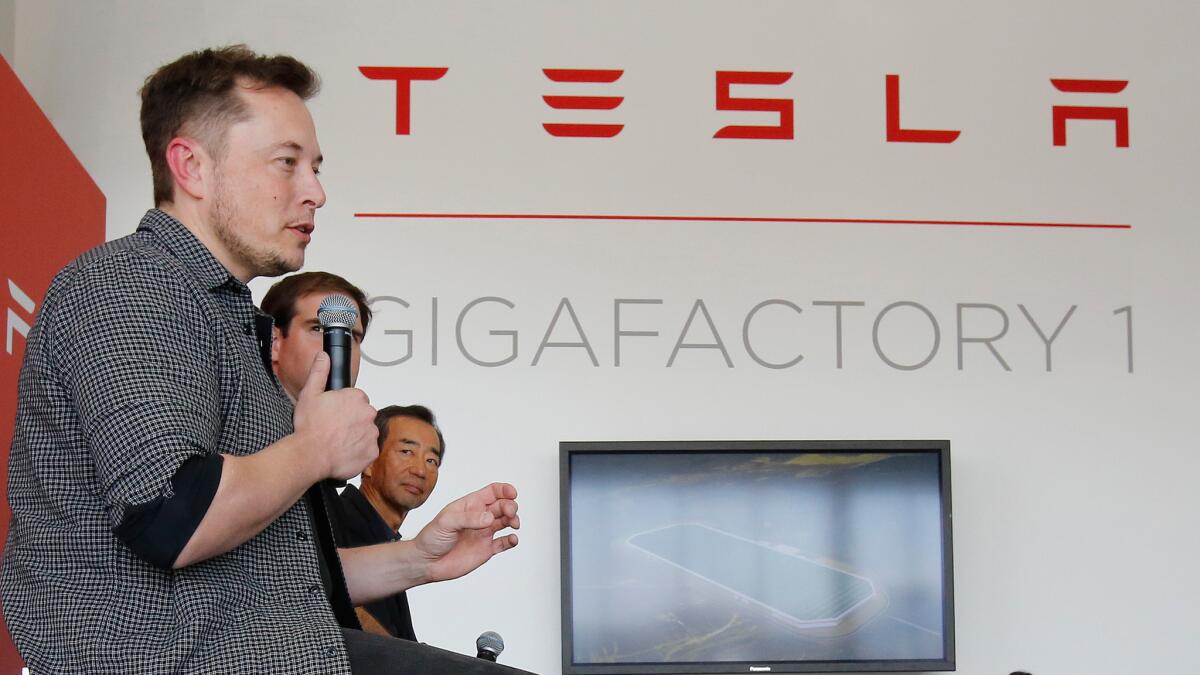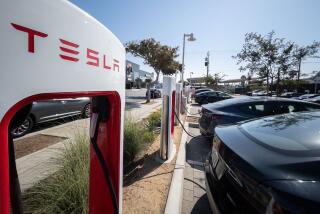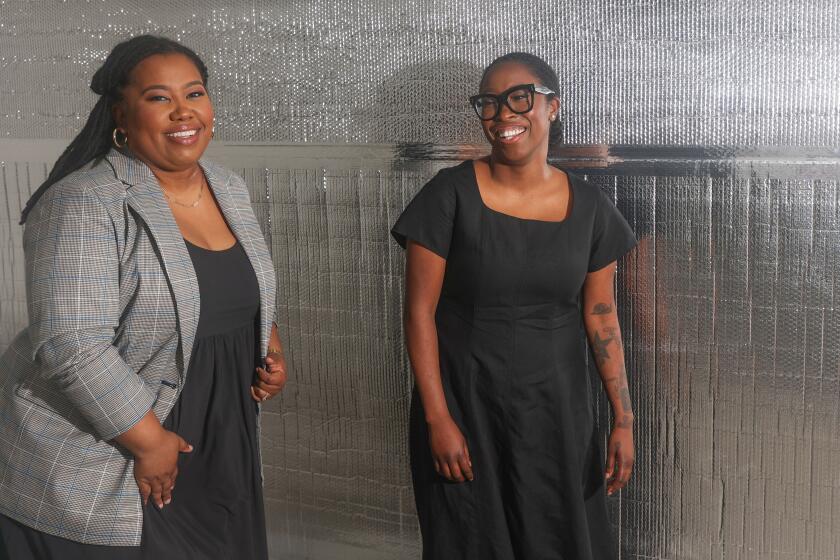Elon Musk’s Tesla Gigafactory idea was crazy, Panasonic exec thought. And yet ...

When Yoshihiko Yamada was introduced to the idea of the Tesla Motors Gigafactory a couple of years ago, he said, “I thought it was crazy.”
Crazy, because “the production capacity of this factory would exceed the global capacity of the industry,” the Panasonic Corp. executive vice president said Tuesday.
Still, Panasonic agreed to partner with Elon Musk’s Tesla to make batteries at the giant plant outside Reno. It wasn’t until nearly 400,000 people put down deposits in the spring to buy the upcoming Model 3 that Yamada realized there is strong demand for the electric cars — and the batteries that power them — and things didn’t look crazy anymore.
Called Gigafactory 1, the massive operation, still under construction, aims to create enough car batteries to turn out 500,000 Teslas in 2018. The plant will cost Tesla at least $5 billion, though Musk said during a media preview Tuesday that the company’s battery business eventually will be as big as its car business and he expects to pour many billions more into new battery factories.
Panasonic is gambling $1.6 billion to make battery cells from raw material at Gigafactory 1 and push them onto Tesla assembly lines, where they’ll be packaged into battery modules for electric vehicles.
The two companies have been working closely together for years. Tesla buys cells from Panasonic, which ships them to the automaker’s Fremont, Calif., factory from Japan, where Panasonic is based.
Soon, those efforts will be consolidated at the Gigafactory.
Under the partnership, Panasonic will install its own equipment and manage its own employees, and, in effect, sell the battery cells to Tesla. Gigafactory employees from both companies, however, will work closely together.
The batteries are lithium-ion, the rechargeable kind that power laptop computers (and, in a different form, smartphones and other electronic devices.)
Lithium-ion cells look like larger versions of a AA battery. Electric cars use thousands of them, packaged together tightly.
Panasonic knows how to make batteries: It has shipped 180 billion of them since 1931.
But making lithium-ion batteries for electric cars in high volume is a new thing for everybody.
“The reason we decided to work with Tesla was we share the vision and mission of Tesla, contributing to the sustainable world,” Yamada said. There are billions more batteries to sell, too.
ALSO
By buying Yahoo, Verizon scoops up a rare prize: Silicon Valley real estate
To see why LeEco bought Vizio, look at the Chinese company’s smartphones
Column: Watch as four giant oil companies try to interfere with a California election







